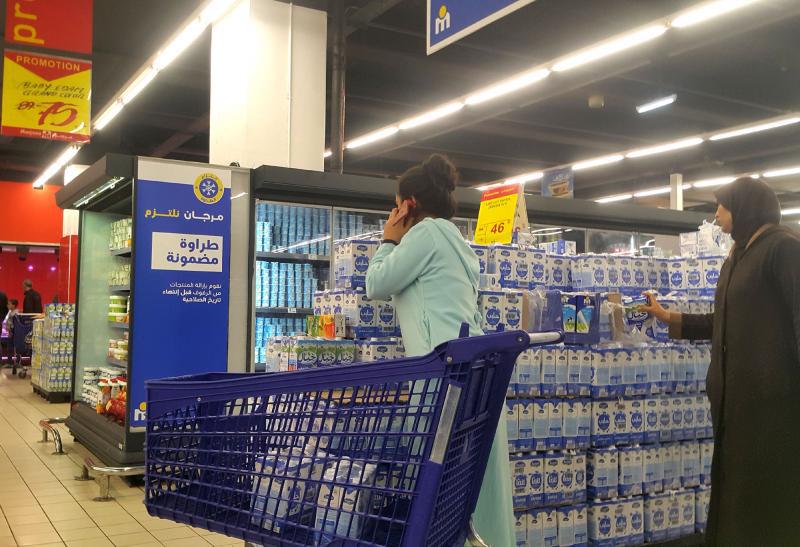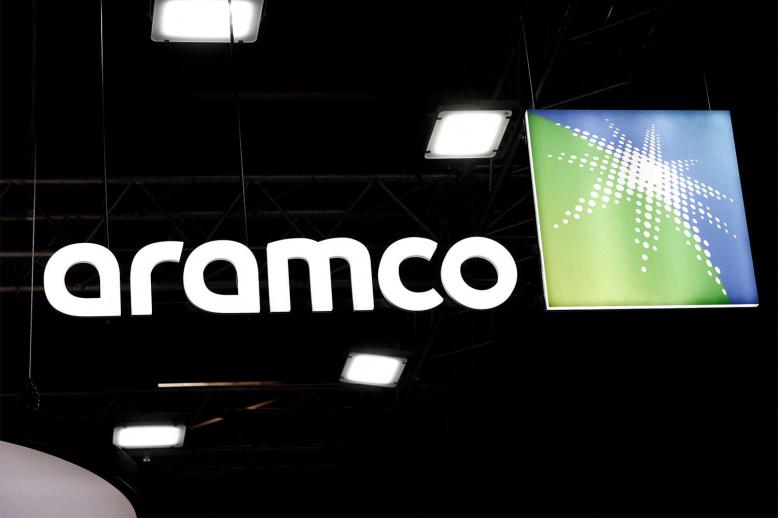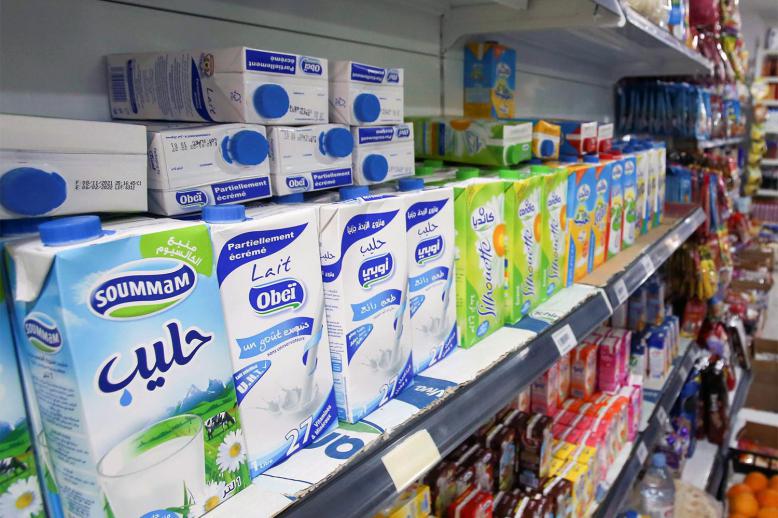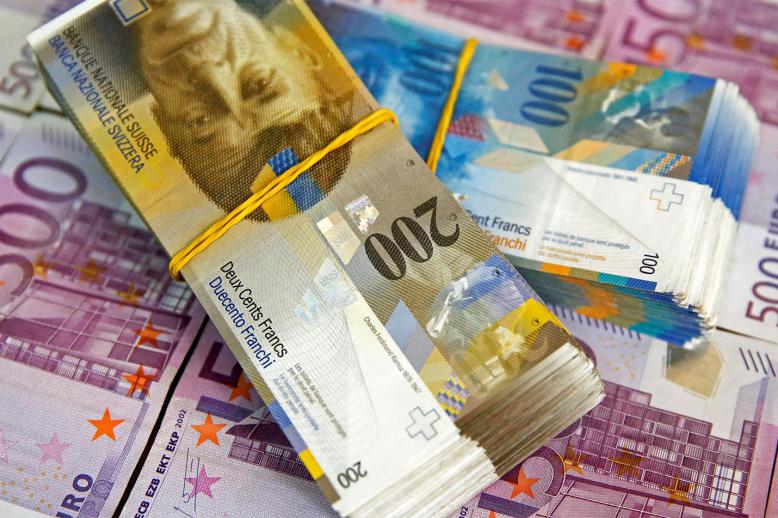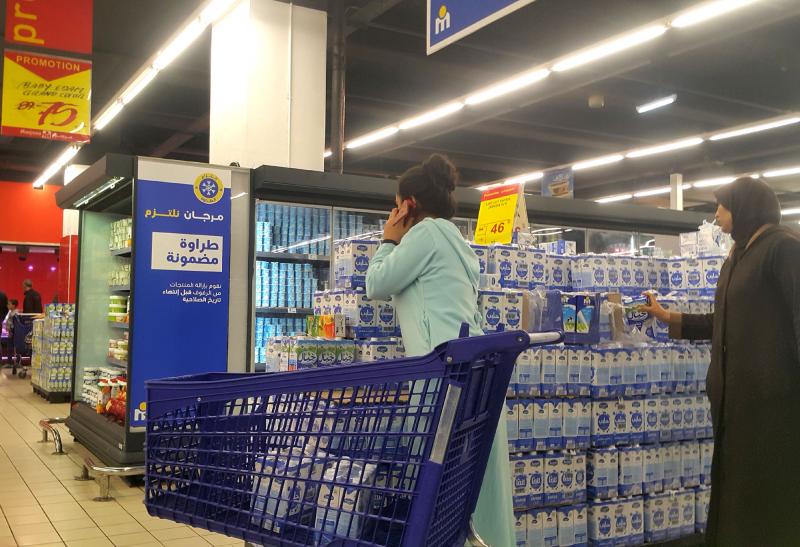Boycott campaign sparks heated debate in Morocco
CASABLANCA - One month after it was publicised on social networks, a boycott campaign against some leading brands in Morocco has sparked heated debate in parliament.
Moroccans took to social media to push a boycott of Sidi Ali mineral water (owned by Eaux Minerales d’Oulmes), Afriquia petrol stations (owned by Akwa Group) and Centrale Laitiere milk (owned by Centrale Danone) to protest “exorbitant” prices, which boycott campaigners say are much higher than the companies charge to European customers.
“We have to encourage Moroccan companies and products, which is not the case for some morons who are calling for a boycott of structured companies employing staff and paying their taxes,” Finance Minister Mohamed Boussaid said during a parliamentary session April 25.
Opposition MPs accused the government of ignoring people’s boycott claims and insulting Moroccans.
“Some forces of the Moroccan people have called for the boycott. The government does not respond to these demands. On the contrary, the ministers insulted the Moroccan people. They called them ‘morons,’ some even branded them ‘cattle’,” said Abdellatif Ouahbi, an MP from the Authenticity and Modernity Party.
“Ask them the question (Why are you boycotting?) Do not these people have the right to argue with you? The hard reality is that your government cannot meet people’s demands,” he said.
Lahcen Daoudi, the minister in charge of general affairs and governance, said the misplaced remarks of some ministers did not reflect the government’s official position. Nonetheless, Boussaid’s statement added fuel to the fire on social networks.
“We voted for you and brought you to power and now you consider us morons. What you should be doing is meeting Moroccans’ demands. You should be the first person to defend Moroccans’ rights,” said one person whose Facebook video was viewed hundreds of thousands of times.
Prime Minister Saad Eddine El Othmani publicly apologised to Moroccans for some of his ministers’ “offensive” statements, according to Al Ahdath Al Maghribia daily.
“Contrary to certain allegations, the government has never been against its citizens. It remains, on the contrary, attached to the defence of the interests of all citizens, all categories combined, as well as those of the national economy as a responsible government and emanating from the popular will,” said Othmani.
Celebrities expressed support for what they called a “civilised” boycott campaign due to the rising standard of living.
“In this civilised manner, people are expressing themselves and saying enough is enough. This should be a wake-up call for those who are thinking of raising prices of goods during Ramadan,” actor Rachid el-Ouali told Hiba TV.
Rachid Aourraz, an analyst and researcher at the Arab Centre for Scientific Research and Human Studies, said the country’s Competition Council was not ensuring fair competition between companies and control prices.
“The liberalisation of prices in many sectors by the former government was not followed by a tight control by the Competition Council, which has prompted the virtual boycott campaign,” said Aourraz.
The council was set up in 2008 to fight anti-competitive practices and to study the function of markets. However, the institution never accomplished the duties conferred to it by the Moroccan Constitution of 2011 or the Law on the Council of the Competition.
Council President Abdelali Benamour denounced that the groups’ members were not renewed.
“We do not know why the new members of the council have not yet been appointed. We thought this was the result of administrative slowness but over time we are justified in thinking that there are other reasons behind this delay,” said Benamour.
“If the council had its powers, of course it could have monitored what is happening within some big companies. We might have avoided some of the problems that exist today in the arena and helped reduce congestion.”
Aourraz said the release of a report by a parliamentary committee on petrol prices was blocked in parliament by members of the National Rally of Independents, which is headed by Aziz Akhannouch, the minister of agriculture and fisheries.
“This shows that Akhannouch’s personal interests are far bigger than the legislative institutions, which is a major problem for the government’s credibility,” said Aourraz.
The hashtag “we are all boycotting” was trending and targeted companies reported heavy losses, Moroccan media said.
A manager at Centrale Danone, whose milk was targeted by the boycott, told Le Site info that losses reached 15-20%.
“It’s a big setback but it’s not as bad as it sounds,” he said.
Akhannouch, who owns Akwa group, said: “The boycott campaign will not affect the sale of these products on the market. It is a virtual campaign that cannot in any case cut bread and butter to the 474,000 people working in the milk sector with Centrale Danone.”
Government spokesman Mustapha El Khalfi said the price of milk had not increased since 2013 and that Centrale Danone’s profit margin for each litre of milk does not exceed “20 centimes” ($0.02).
The government issued a warning to boycott organisers against “disclosing” false information on social networks. “The appeal of this boycott is unfounded because it is based on false considerations,” said Khalfi.
Aourraz said the boycott campaign was healthy and sound, proving that Moroccans had reached maturity in expressing anger against the rising cost of living.
“The amount of videos and graphics that has been circulating on social media shows that Moroccans are well-informed and creative in dealing with various issues affecting their daily lives,” he said.
This article was originally published in The Arab Weekly.

